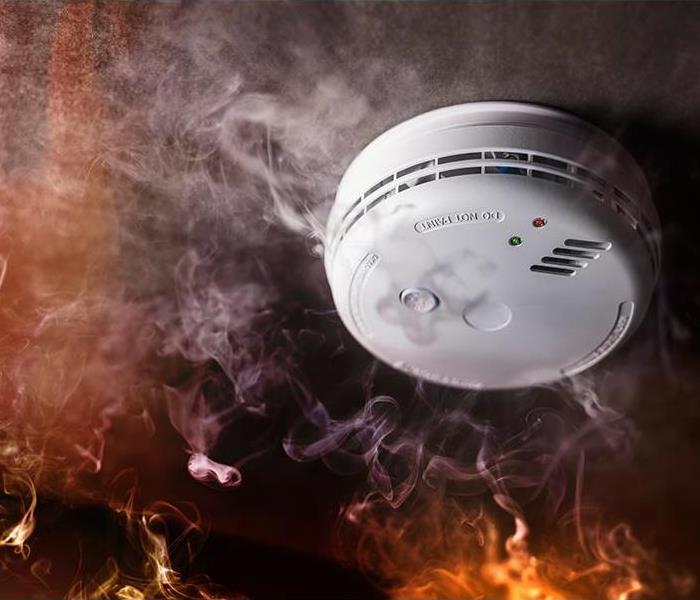What You Need to Know About Smoke Alarms and Carbon Monoxide Detectors
9/5/2023 (Permalink)
Smoke alarms and carbon monoxide detectors are must-have items in your home, period. They can mean the difference between life and death should an unexpected fire or carbon monoxide leak happen in your home. That’s why there are some important things to note about each…
What You Should Know About Smoke Alarms
According to the National Fire Prevention Association, nearly 80% of home fire deaths happen in properties that don’t have working smoke alarms. Fortunately, most local and state laws require that you have at least one working smoke alarm on every level of your home. The Consumer Product Safety Commission takes your safety further by also recommending smoke alarms outside sleeping areas and inside each bedroom.
If a smoke alarm goes off in your home, you should:
- Get down to the floor and stay low, as smoke rises and gets hotter the higher it goes.
- Feel your door; if it’s hot, use another exit.
- Meet loved ones at your designated spot outside your home, then call 911.
What to Know About Carbon Monoxide (CO) Poisoning and Detectors
Carbon monoxide (CO) is often called a “silent killer” because it’s a poisonous gas that’s tasteless, odorless, and colorless. CO is produced by many gas-burning appliances such as stoves, generators, portable heaters, and furnaces. It’s important to known these symptoms of CO poisoning, and that you should not hesitate to call 911:
- Headache
- Dizziness
- Weakness
- Nausea/Vomiting
- Chest Pain
- Confusion
Carbon monoxide detectors are inexpensive yet lifesaving devices should a CO gas leak happen in your home. Just as with snoke alarms, you should have a CO detector on every level in your home, including the basement. Also like smoke alarms, it’s important to check the batteries in CO detectors every 6 months.
Your Fire Damage Restoration Experts
Should you ever have to deal with a fire in your home, it’s comforting to know there is a 24/7 resource for fire damage restoration in your area—SERVPRO of Southeast Milwaukee County, Southeast Waukesha County. Our trained specialists take fire damage restoration process seriously, using specialized equipment and expertise to restore your home and property to its pre-fire condition. Call us at 414-421-3500 or contact us online for more information.




 24/7 Emergency Service
24/7 Emergency Service
